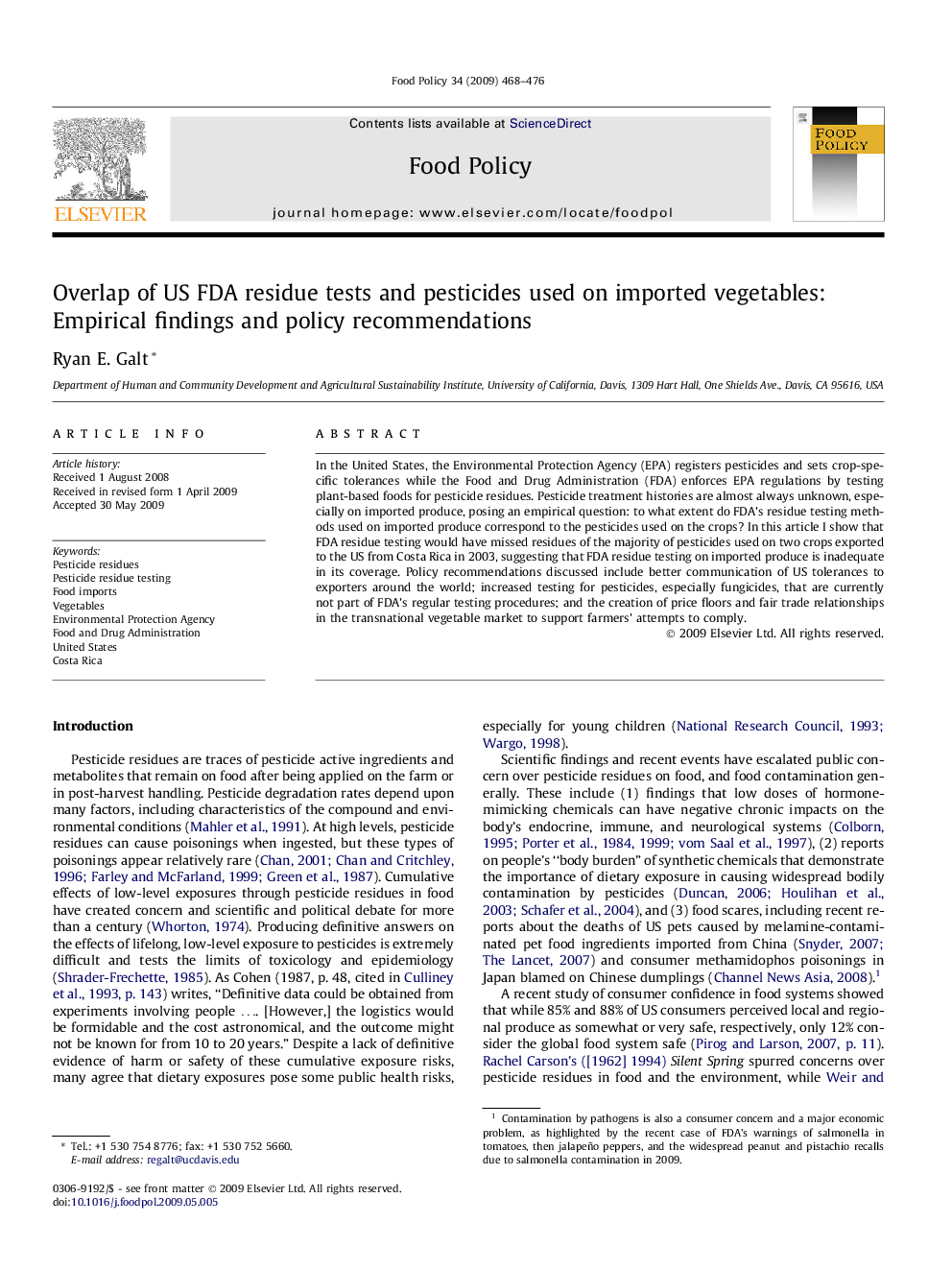| Article ID | Journal | Published Year | Pages | File Type |
|---|---|---|---|---|
| 5071025 | Food Policy | 2009 | 9 Pages |
Abstract
In the United States, the Environmental Protection Agency (EPA) registers pesticides and sets crop-specific tolerances while the Food and Drug Administration (FDA) enforces EPA regulations by testing plant-based foods for pesticide residues. Pesticide treatment histories are almost always unknown, especially on imported produce, posing an empirical question: to what extent do FDA's residue testing methods used on imported produce correspond to the pesticides used on the crops? In this article I show that FDA residue testing would have missed residues of the majority of pesticides used on two crops exported to the US from Costa Rica in 2003, suggesting that FDA residue testing on imported produce is inadequate in its coverage. Policy recommendations discussed include better communication of US tolerances to exporters around the world; increased testing for pesticides, especially fungicides, that are currently not part of FDA's regular testing procedures; and the creation of price floors and fair trade relationships in the transnational vegetable market to support farmers' attempts to comply.
Keywords
Related Topics
Life Sciences
Agricultural and Biological Sciences
Food Science
Authors
Ryan E. Galt,
